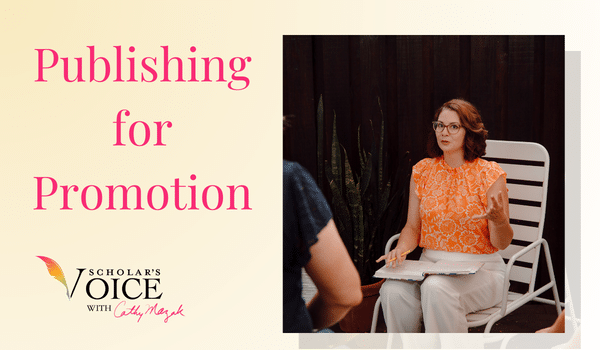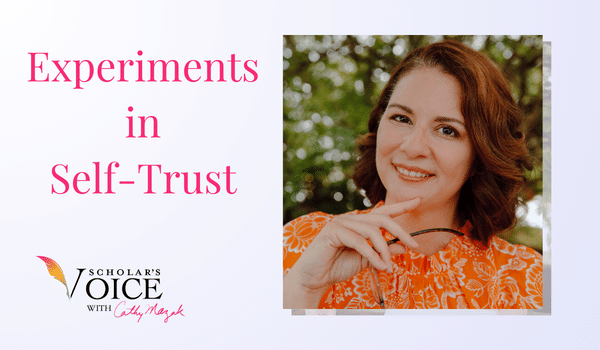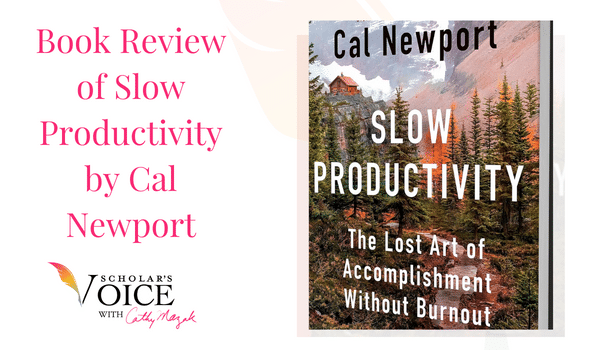Resisting the “Catch-up” Mentality

Burnout is a real thing for academics. I know you know this, but you might not know exactly what “pre-burnout” looks like, and what to do if you feel like you might be on the edge of a burnout.
MORE DETAILS
On this podcast episode, I’m sharing the stories of two times that I got very close to burning out, how I dealt with it, and what I’m doing to keep a comfortable pace right now. I’m sharing some red flags to help you recognize the signs of pre-burnout in yourself, as well as an exercise to help you control the pace of your academic life so academia feels good to you.
My stories
My first burnout situation came when my infant son became extremely sick. About two weeks into the semester, after I went back to work from maternity leave, my 10-month-old son stopped breathing while I was nursing him to sleep one night.
This was the beginning of the 10 most horrible days of my life.
By late October I was so exhausted and strained that I could not continue. If I didn’t take action I would end up in the hospital myself.
So I took sick leave. Right at the worst time of the semester. I remember sitting in the office of my young, single department head and feeling like he would never understand, or would push back. But he didn’t. I took the leave I needed to recover.
“I thought the world was going to collapse, but it absolutely did not.” -Cathy Mazak
My second experience with pre-burnout came the traumatic academic year of Hurricane María. We were a country exhausted from hurricane recovery and a university trying to find our footing after blow after blow by the Financial Oversight and Management Board for Puerto Rico. We were collectively breaking down.
But this time I recognized the signals and took action sooner. I heard the desperate voice in my head that said, “I just need to breathe. I can’t keep this up. If I could only rest …” This time, I intentionally listened to that voice and rested. On the weekends, I made myself lie down, I cleared our schedule, we ate more takeout, and the kids watched more Netflix. I whittled down my to-do list until it only contained the absolutely necessary items to finish the semester: grade the papers. Give the classes. That’s it
The difference between this almost-breakdown and the first one was that I knew that if I cut way back, everything would still be fine. The world would not end. And, I deeply understood that if I didn’t deliberately rest, I would collapse, and that wouldn’t serve anyone.
Read about my son’s illness, the year after Hurricane Maria, and all the details in this article I wrote for Inside Higher Ed.
Recognizing Pre-Burnout
Recognizing you are about to burnout means tuning in to what your body and mind are trying to tell you. Here are some red flags for me:
- I was exhausted from the moment I woke up to the moment I went to bed. I had no energy.
- I was mentally foggy. I couldn’t bring up the words I wanted to use, and my memory was shaky.
- I was on the verge of tears constantly.
Recovering from Burnout (and Avoiding it in the Future)
Recovering from burnout is not easy. It takes intentional effort to make the right choices for your health. Here are some ideas for recovering and avoiding the issue in the future.
- Create room for deliberate rest. Nap when you can, go to bed early, do whatever you can to get more sleep.
- Pare down your schedule to include only the absolute necessities.
- Move your body. Find a way to incorporate gentle exercise. I joined a gym that provided childcare.
- Call in reinforcements. Ask for help! Draw on whatever resources you can. I called my mom to come help with the kids for a while.
- When summer rolls around, don’t try to “get ahead”. Plan it out to include rest and activities that rejuvenate you.
- Do whatever is necessary to recover, including taking time off.
Controlling the Pace-How do You Want Academia to Feel?
If you’ve had an experience that stopped you in your tracks like a death in the family, illness, or other serious issue, you may have been forced to change the pace of your academic life. But you don’t need to wait for something to blow up to decide you need a change.
How do you want to feel in your academic life? Remember that the feeling comes first, not after something you’ve set up as an arbitrary sign post. Here is an exercise you can do to prioritize your own goals for how you want academia to feel for you.
- Choose one word for the way you want to feel in your academic life and write it down.. (For example: Calm)
- Now list 10 things that a person who that adjective describes might do.
For our example of “calm”, you might write:
- Eats breakfast sitting at the table
- Takes a walk every day
- Is content with accomplishing three things
- Makes a plan and sticks to it
- Starts work at 9:00 and stops work at 5:00
- Gets 7-8 hours of sleep
- Asks for help before a situation gets out of control
- Shakes off guilt about undone projects
- Concentrates on restorative activities on the weekends
- Meditates using the Calm app in the middle of the work day
The problem is that you are saying when X happens, THEN I’ll feel Y. But you need to start feeling Y right now. Nothing needs to happen first.
“You need to draw a line in the sand and say, ‘from now on, I am a calm person’”. -Cathy Mazak
If you want to join a small cohort of academic women who are learning ways to amplify their impact in academia without the break-neck pace, apply for my Amplify: Writing Accelerator program. In this program, you’ll get permission to do things the way that feels right for you, and learn how to write and publish more while still controlling the pace. Say goodbye to guilt and overwhelm, and hello to a new movement for women in the campus culture. Click here to apply.
Connect with me:
RELATED PODCASTS
Stay current in Academic Publishing
Subscribe to our newsletter:
In the Pipeline
writing tips, publishing trends, reading recomendations, free workshops





